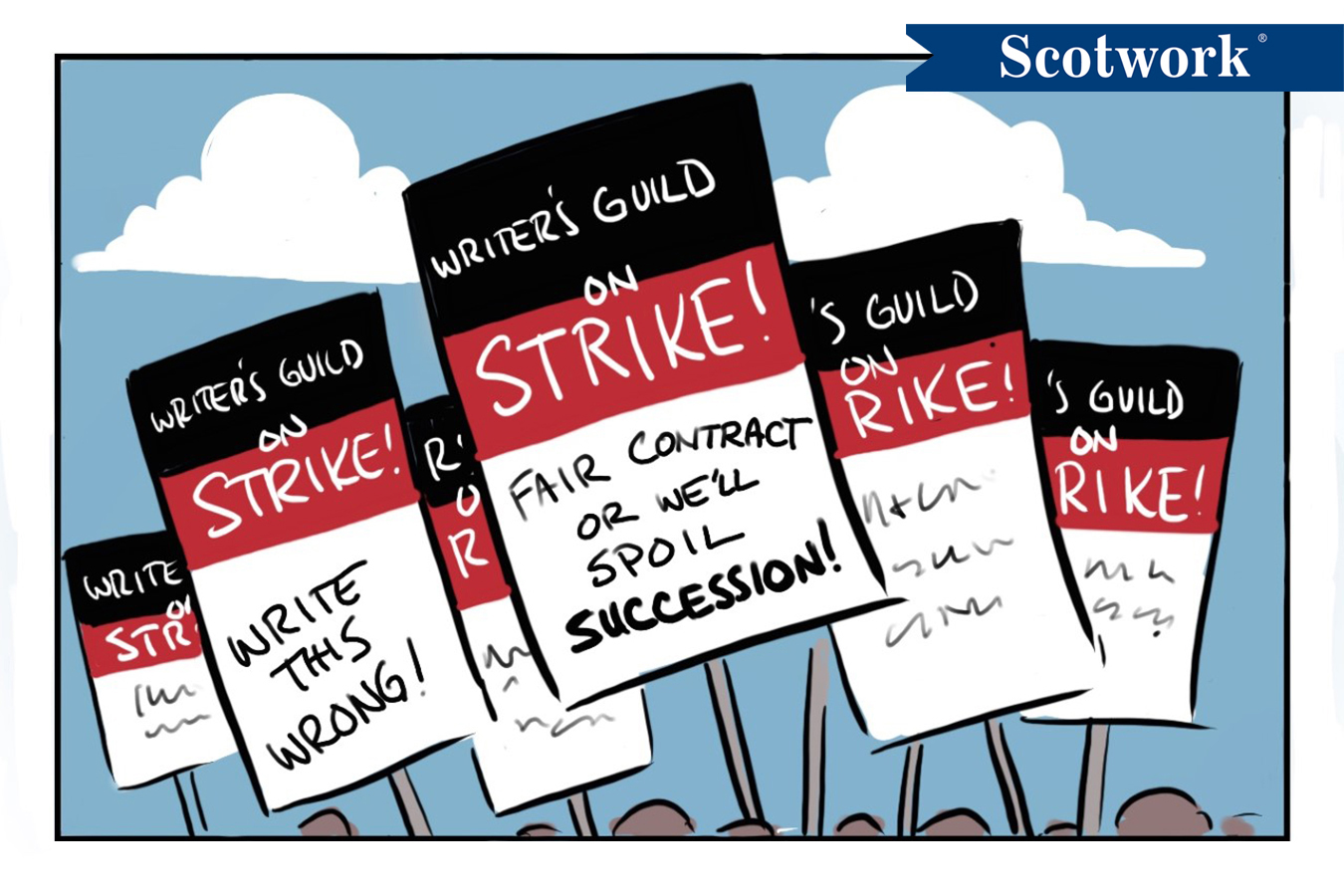This week, it was announced that all late-night talk shows will be going dark because the Writers Guild of America (WGA) went on strike. Now what am I going to fall asleep to? They’re the first shows to be impacted by the strike, but they won’t be the last. In other words, get ready for reruns!
As the industry ventures into the unknown, there’s a question on a lot of people’s minds: Could they have avoided the strike?
To start to answer that question, you have to look at what changed in the current agreement that led to this negotiation. When an agreement’s fundamental elements have changed, a negotiation may not be far behind. Usually, those changes are due to external factors, but they can also be caused by either party not living up to their side of the agreement.
In this case, a lot has changed since the last time the WGA and the Alliance of Motion Picture and Television Producers (AMPTP) negotiated a deal in 2007 (which, it should be noted, is the last time the WGA went on strike). The first major external factor was the advent of streaming. Netflix didn’t start streaming till 2007. At the time of the last agreement, streaming was more of an afterthought, so no one really understood how that technology would disrupt the agreement. The next technological disruption — the introduction of AI — is more recent. The WGA is starting to see more writers being asked to rewrite scripts written by AI, and they’re predicting that AI will be relied upon more exclusively in the future. Both parties want to protect their interest in the face of these market changes.
There’s a lesson for the rest of us: be on the lookout for external disruptions that could change the fundamentals of your agreement. Some disruptions happen quickly (like a pandemic or natural disaster); others may happen over time (like streaming’s rise in popularity). Regardless, if you’re vigilant about those changes, you can get ahead of a future negotiation.
The next thing to look at is how each party addresses all the issues on the table. Stephen White, Scotwork’s Chairman, recently wrote an article about the lessons we can all learn from a strike. One of the biggest mistakes, he points out, is “making proposals that will never fly because they are one-sided.” Very frequently, negotiations break down because one party does not feel heard as their issues are not being addressed. That’s a sure path to deadlock or a strike because it forces the unheard party to take drastic action.
This is exactly what the WGA is complaining about. According to Variety, the AMPTP delivered a 40-page package of proposals to WGA’s negotiating committee, and it did not include key elements that the WGA insisted were essential to getting a deal. In essence, the AMPTP focused on what was important to them and, ultimately, the WGA did not feel heard. That’s a recipe for drastic measures.
The lesson for the rest of us is to make sure you understand what’s important to the other side and that you address all the issues on the table. By the way, addressing all the issues doesn’t mean you have to come to terms on the issues, but they need to at least be acknowledged and dealt with. Otherwise, you’re leaving the door open to resentment, frustration, and deadlock.
As of the writing of this article, it seems that each side is content with waiting out the other side. The AMPTP is hoping they can hold out against the writers’ pocketbooks, and the WGA is hoping the studios won’t be able to align and will give in. Seems like a dangerous game of chicken, and we won’t be watching any new late-night content for quite some time. In the meantime, heed lessons and avoid your own strike.
We Can Help You Avoid Deadlock or a Strike.
Has your team ignored external disruptions that could change the fundamentals of an agreement? Have they made one-sided proposals that will never fly with the other side? Then they might be headed for deadlock or a strike. We can help! Draw on Scotwork’s nearly 50 years of real-world negotiating experience to get better deals, save time, and create value that preserves and strengthens relationships. Partner with one of our advisers to ensure you have the optimum view of your deal.

